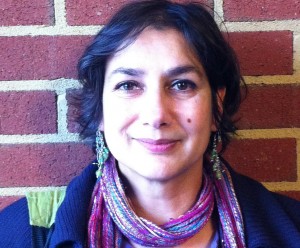 Social Work means enabling, empowering, supporting and protecting.
Social Work means enabling, empowering, supporting and protecting.
To me, being a social worker means helping the most vulnerable children achieve their full potential, free from fear of harm or abuse and to have a positive, aspirational outlook on life.
It also means enabling and empowering parents – helping them to make positive choices for their children and encouraging their children to become independent, self-determining and caring adults who are more likely to be able to make better choices for their own children.
I hope this doesn’t sound clichéd or idealistic rhetoric that becomes meaningless and is unachievable. The above are all important factors into why I thought about a career in social work. I am a student social worker on my final placement and so still may not fully appreciate all the realities of Child Protection work, but I do want to be able to support the families I work with to achieve positive outcomes for their children.
Social Justice is an important part of why I wanted to be a social worker: I worked within the voluntary sector (teaching ESOL to refugees and asylum-seekers and listening to their stories and wanting to understand their circumstances and later on, training to work in a Domestic Violence refuge and mentoring an asylum seeker. As a teenager, I volunteered in an Residential Home and worked in a Geriatric Ward in the local hospital and observed first-hand these settings did not always treat their patients with respect or view them as people who still have any value or contribution to make. I remember being told off by the manager for sitting and talking to the residents, who otherwise sat in chairs facing each other for interminably long periods of time and it is shocking that this approach has endured and only recently been publicly challenged.
So the circumstances surrounding the adult have always interested me but, also I have been interested in a career in Children’s Social Work for many years. I worked in schools as an ESOL Teaching Assistant and a Primary School Teaching Assistant and at a children’s community playgroup, to gain experience in working with children. These roles were in a socially deprived area and the families were experiencing quite a lot of the issues that required social work intervention.
The playgroup was my first experience of working directly with vulnerable families and supporting them with both practical and parenting issues. It was important to not just be preaching or imposing your views (or your organisation’s) onto families but to work together and also to have fun and encourage parents to spend time having fun with their children. So when I later began working as a Social Work Assistant in a Referral and Assessment Team, I was already certain that social work was what I wanted to do.
I will be 50 years old when I begin work as a NQSW, which may be a social work record! My childhood and adolescence was complicated (as many are). I am mixed race (Anglo-Asian) but grew up in White British community where I continually felt out of place and isolated. I also had some personal experience of social workers and the child protection process within my extended family and there was a lot of blaming and anger around at that time.
I spent some years overcoming low self-esteem and identity issues and learning to reflect on my upbringing and the impact it had on me. I made mistakes (sometimes several times over) and looking back can see that I was a bit chaotic at times. However, I have always had very strong, enduring friendships and this has enabled me to overcome my own issues and conversely also provide emotional and practical support for my friends and family in times of crisis or distress.
The Social Work Masters has helped me develop into a more reflective practitioner and I am more aware of my impact as a social worker. I also have a better understanding of the importance of resilience to enable positive change. I realise that my own experiences are unique to me but can help me to understand and empathise better with families that I work with.
Before starting the course, I would have said social work was largely an ‘intuitive’ field where practitioners used their knowledge of ‘self’ and previous case knowledge. Intuition is a useful tool but in the age of measurement tools and scales, it can lack consistency and objectivity. I think part of the challenge for me is not getting so caught up in the parent’s story that the child’s needs get overlooked or compromised – as Munro and many others point out the child should always be at the centre of the work. As I approach becoming a qualified social worker, I am beginning to understand how social work knowledge is a complex fusion of theory, findings from research and practice wisdom that we can draw on to help keep focus and also understand the child within a context.
An awareness of the various ways in which social work intervention can be viewed has altered my perspective on how social work is perceived by others. I have read a lot recently about how social work needs to regain some of its status as a profession that combines caring for people with being able to offer effective support and I can see the value of this and agree that we need to be seen as professionals to be taken seriously again by the public and other professionals. However, I also think the challenge is worth it and I look forward to becoming a Social Worker later this year!
Sharon Scott is an MSc Student at the University of Hertfordshire (@UoH_HealthandSW). Join us @SWSCmedia for a live World Social Work Day Twitter Chat on Tuesday (19 March 2013) 8:00 PM GMT / 4:00 PM DST. Hashtag #SWSCmedia
